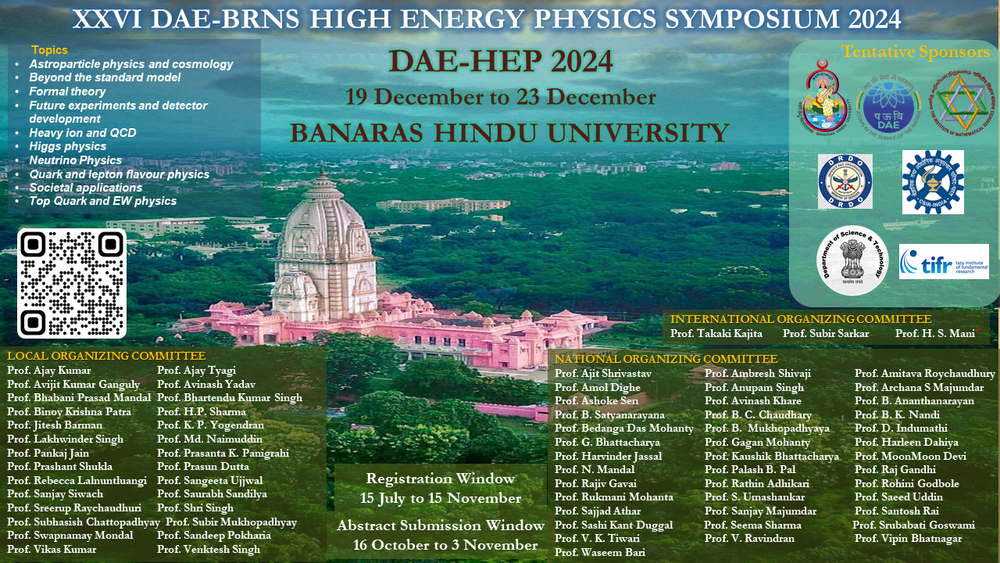Speaker
Description
We study thermal and non-thermal resonant leptogenesis in a general setting where a heavy scalar $\phi$ decays to right-handed neutrinos (RHNs) whose further out-of-equilibrium decay generates the required lepton asymmetry. Domination of the energy budget of the Universe by the $\phi$ or the RHNs alters the evolution history of the primordial gravitational waves (PGW) of inflationary origin, which re-enter the horizon after inflation, modifying the spectral shape. The decays of $\phi$ and RHNs release entropy into the early Universe while nearly degenerate RHNs facilitate low and intermediate-scale leptogenesis. We show that depending on the coupling $y_R$ of $\phi$ to radiation species, RHNs can achieve thermal abundance before decaying, which gives rise to thermal leptogenesis. A characteristic damping of the GW spectrum resulting in knee-like features would provide evidence for low-scale thermal and non-thermal leptogenesis. We explore the parameter space for the lightest right-handed neutrino mass $M_1\in[10^2,10^{14}]$ GeV and washout parameter $K$ that depends on the light-heavy neutrino Yukawa couplings $\lambda$,
in the weak ($K < 1$) and strong ($K > 1$) washout regimes. The resulting novel features compatible with observed baryon asymmetry are detectable by future experiments like LISA and ET. By estimating signal-to-noise ratio (SNR) for upcoming GW experiments, we investigate the effect of the scalar mass $M_\phi$ and reheating temperature $T_\phi$, which depends on the $\phi-N$ Yukawa couplings $y_N$.
| Field of contribution | Phenomenology |
|---|
